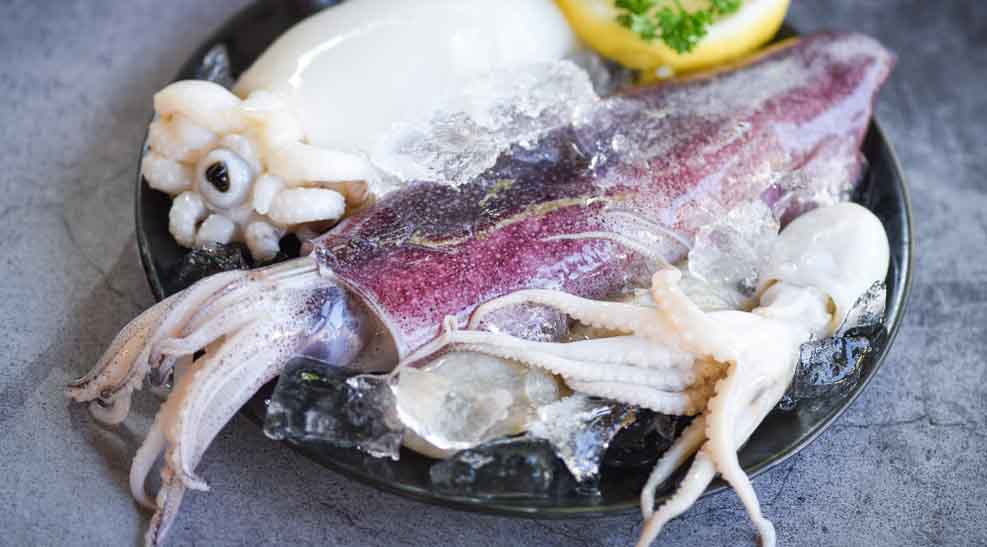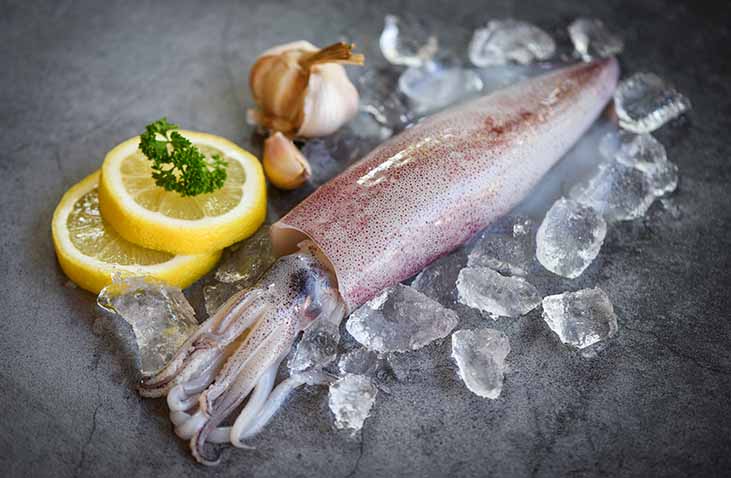
Octopus and squid are both ocean-dwelling cephalopods. Nevertheless, they have different physical characteristics, behavioral patterns and habitats. Generally speaking, the former has a round head and eight long arms full of one or two rows of suckers. Squids have a triangular head, a mantle and eight arms with suckers or suction cups. In this article, we’ll provide more details on the differences between octopuses and squids.
As it has no internal skeleton, the body of an octopus is very soft. The only hard part of its body is its beak, which is made of chitin and used to eat prey.
The main part of a squid’s body is called the mantle. Two fins project from it, with one on each side. Its skin is covered with chromatophores, which allow it to change color and blend in with its surroundings.
Did you know that both species have three hearts? Two of them pump blood to the gills, while the third pumps blood throughout the body.

Visually, the appearance of the bodies of these cephalopods is completely divergent. The squid has a large head with thin, short tentacles (particularly when compared to the size of the head) and the octopus is exactly the opposite, with a small head and 8 long arms.
Another piece of information that helps distinguish between the two animals is that most squids are smaller than octopuses, with the exception of giant squids. Most squids measure less than 12 in (30 cm). By contrast, octopuses—with a life span of approximately 5 years—grow to be quite large. Although the average octopus is 12 in–36 in (30 cm–90 cm), they can grow to up to 4.3 feet (1.3 m)!
Male octopuses use the hectocotylus, a specialized arm for transferring their sperm to the mantle cavity of a sexually mature female. The female lays eggs, which she guards until they hatch 30 days to one year later, depending on the species. Squids exhibit a different reproductive behavior; they mate in groups and deposit clusters of eggs in algae. Both species die soon after going through the reproductive cycle.
Both of them move by means of jet propulsion. That is to say, by sucking water and then pushing it back out quickly through a narrow siphon. This lets them easily move around in all directions. Although squids use their fins to propel themselves, did you know that adult octopuses have no fins? An interesting fact about squids is that they also have a telescopic eye that allows them to focus while in motion, making it easier for them to move around.


Now for the moment of truth. Is calamari squid or octopus? Although it’s quite common to confuse the two, calamari is actually squid. One simple way to distinguish between a dish made with squid and one made with octopus is that when the meat is served as rings, it is always squid. The rings are slices of this animal’s head, which is empty on the inside, creating that familiar ring shape.
Conversely, the octopus has a small head (which is generally discarded when cooking) and long tentacles. These tentacles are firm and covered with suckers of different sizes.
If the dish only contains tentacles, one way to differentiate them is that octopus tentacles are larger, with sizable suckers, whereas squid tentacles tend to be smaller, which means that their suckers are also much smaller.
In a nutshell, it’s quite easy to distinguish between octopus and squid if you take a good look at the head and tentacles. Remember! The head of an octopus is always more rounded. By contrast, the squid has arms lined with small suckers, which are usually smaller than those of an octopus. Now that you know how to differentiate between them, you can’t go wrong on your next trip to the market!
When you’re asking yourself is calamari squid or octopus, remember!
The head of an octopus is always more rounded. Conversely, the squid has arms lined with suckers, which are usually smaller than those of an octopus.
Rate this post!
Me encanta!
That’s cool. I thought it was octopus.
cool. thanks